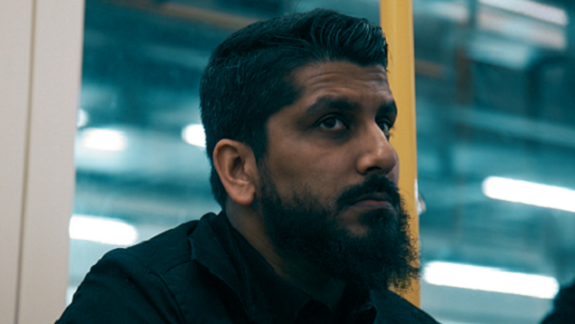Phantom Parrot unravels a secret British government surveillance programme and follows human rights activist Muhammad Rabbani as he is prosecuted under terror laws for refusing to hand over the passwords to his electronic devices, unveiling unsettling questions about the rule of law, modern espionage and digital privacy.
In this non-fiction thriller, Director Kate Stonehill has crafted a razor-sharp analysis that unravels the threads and interrogates our privacy in the era of information. If British police ask for the password to your phone or computer, you must hand it over to them in accordance with an anti-terror law that came into force prior to 9/11.
When human rights activist Muhammad Rabbani refuses and is prosecuted, a journalist is able to uncover documents proving the existence of a top-secret surveillance programme, codenamed Phantom Parrot, designed to copy the personal data of individuals at airports and border crossings. And from there, the dominoes start falling in all directions in a dark detective film about technology, surveillance and structural racism in a time where knowledge might still equal power but where data is even better.
Director Kate Stonehill said: “We are approaching a watershed moment when it comes to privacy.
“Whether it's the government or Google, institutions are encroaching on parts of our lives that they never previously had access to. How has this fundamental shift altered the way we relate to these powerful entities?
“Phantom Parrot is a story about how technology has redefined the relationship between the citizen and the state.”












